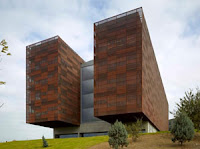Yesterday, a majority of the presbyteries of the Presbyterian Church (USA) voted to amend our constitution to refer to marriage as between two people, traditionally a man and a woman.
Here’s
the wording: Marriage is a
gift God has given to all humankind for the well-being of the entire human
family. Marriage involves a unique commitment between two people, traditionally
a man and a woman, to love and support each other for the rest of their lives.
The sacrificial love that unites the couple sustains them as faithful and
responsible members of the church and the wider community.
In civil law,
marriage is a contract that recognizes the rights and obligations of the
married couple in society. In the Reformed tradition, marriage is also a
covenant in which God has an active part, and which the community of faith
publicly witnesses and acknowledges.
This means that if individual churches
and pastors choose to, they can perform gay weddings.
I know that makes some
Presbyterians afraid that we will lose members to more conservative
denominations. That may happen. I understand their concerns. My concern is that
we are true to our calling to follow Jesus and share the good news of God’s
love with all people.
We tend to think that a person is
either male or female. But that is not always the case. In college, I majored
in human development. I learned that sometimes children are born with ambiguous
genitalia and/or chromosomes. Parents were pressured into approving surgery for
their children, so that their babies would have a specific gender. Sometimes
these children grew up without knowing about their infant surgery, but they
knew that “something was wrong with them.” (This surgery is much less frequent
now, as our understanding of gender has broadened.) I was sad that these children
would have trouble getting married. I looked to the Bible for help. This verse
was scary:
No
one whose testicles are crushed or whose penis is cut off shall be admitted to
the assembly of the LORD. Deuteronomy 23:1
And then this verse was full of
joy for me.
…do
not let the eunuch say, "I am just a dry tree. For thus says the LORD: To the eunuchs who keep my sabbaths, who choose
the things that please me and hold fast my covenant, I will give, in my house and within my walls,
a monument and a name better than sons and daughters; I will give them an everlasting
name that shall not be cut off. Isaiah 56:3b-5
The Bible speaks with many
voices; I trust the Holy Spirit to lead me to the voice that applies to my
situation and my time. To me, this text from Isaiah means that people outside
the binary gender identity are still included in God’s covenant and so we should
include them in our churches and support their marriages. (I am not saying that LGBTQ people are equivalent to eunuchs; I'm just saying that the Bible is clear that people outside the sexual mainstream are still included as a part of God's people.)
I know gay marriage makes some of
us uncomfortable—we will have to get used to it the way we had to get used to
divorced people being able to be married in church. It used to be that if divorced people were
remarried, they couldn’t hold office in the church. Even today, some denominations
will not serve communion to people who are divorced.
My concern for gay marriage in
church is a pastoral one. Most Presbyterian pastors routinely require
pre-marital counseling as part of wedding planning; Justices-of-the-peace do
not. Therapists and counselors offer it, but couples have to pay for it and
plan for it, so not many do. Pre-marital counseling decreases the likelihood of
divorce by a third or a half, depending on whose statistics you’re reading.
During pre-marital counseling, I
help couples identify their challenges, celebrate their strengths, and learn to
work through conflicts about important issues (money, children, chores) when
the conflicts are small. When I meet with a bride and groom, I talk with them
about their spiritual lives, and it is a good opportunity for me to share the
gospel with them. I want every couple to have a holy, healthy, and joy-filled relationship.
Now that people who are LBGTQ can get
married in Presbyterian churches, brides and brides and grooms and grooms too
can have this benefit.















